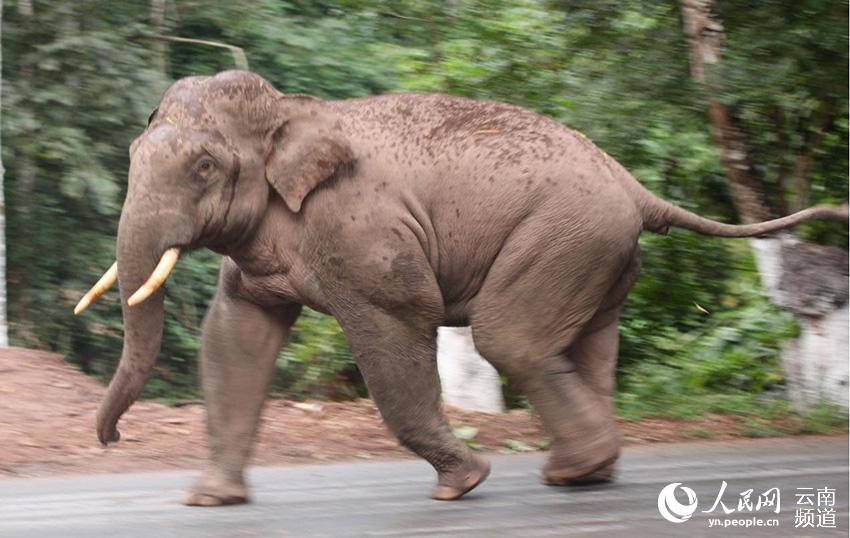Stories of wild Asian elephants in SW China’s Yunnan (3)
Wild Asian elephants are well protected in the Wild Elephant Valley scenic spot, a paradise frequented by the species, in the Dai Autonomous Prefecture of Xishuangbanna, southwest China’s Yunnan province. Here we present several stories about some of the wild animals found in the valley, many having funny and cute nicknames.
Caregivers in the valley named a male elephant “Dapaiya” due to its particularly long tusks. In the prime of his life, “Dapaiya” is currently the strongest male in the valley, which gives him an overwhelming advantage over other bull elephants.
He always sticks near to an elephant herd to protect them and will drive other adult male elephants away. But he allows adolescent males to stay close to him and passes on his skills and knowledge to them.
“Dapaiya” often walks on roads and makes way for vehicles, but he will issue a warning if someone stands too close to him.
In contrast, another short mature bull elephant was nicknamed “Zhusunya”, meaning small tusks. He is no match for “Dapaiya”, and often roams around to find opportunities to join females when “Dapaiya” is absent.
On a spring day in 2017 when “Zhusunya” was trying to approach a herd of female elephants, “Dapaiya” drove him many kilometers away.
As “Zhusunya” frequently bullies elephant calves, female elephants also will often expel him from their sights.
Dewlaps are iconic features of a male Asian elephant named “Chuiroubo”, which means drooping neck skin. Being fully aware that he is not a match against “Dapaiya”, “Chuiroubo” never turns up when “Dapaiya” is present.
“Chuiroubo” never bullies the weak and is very patient with calves. For this reason, sometimes female elephants will follow him on their own initiative.
A female elephant nicknamed “Dalubao”, meaning big bumps in the local dialect of Xishuangbanna, is the leader of her family with about 20 members, which is the biggest family that often visits the valley.
As an experienced and gentle leader, “Dalubao” promotes harmonious relationships among the many family members. But she is not a disciplinarian, and sometimes other female elephants do not always obey her.
“Dalubao’s” family is also gentle and doesn’t take advantage of their power in numbers to bully other elephant herds.
“Ranran“ is a female Asian elephant, and her family, with more than 15 members, was named after her. In 2005, “Ranran’s” leg was caught in a steel trap and she was later saved by a team of rescuers, including those from the Wild Elephant Valley.
Two matriarchs lead the group of daughters and their calves in “Ranran’s” family. One of the matriarchs serves as a “wet nurse” for others’ offspring, an activity rarely seen among mammals. Zoologists use the term “allonursing” to refer to this behavior.
 |  |
Photos
Related Stories
Copyright © 2021 People's Daily Online. All Rights Reserved.











